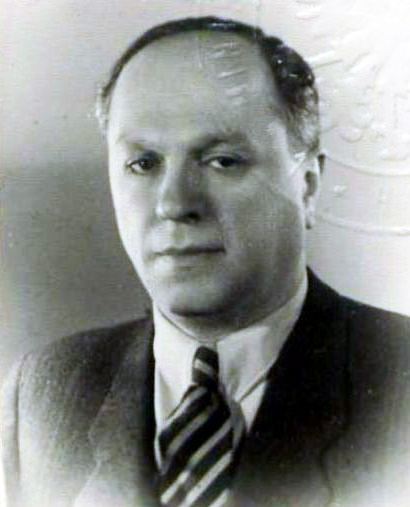Alexander Weissberg on:
[Wikipedia]
[Google]
[Amazon]
 Alexander Weissberg-Cybulski (born October 8, 1901 – April 4, 1964) was a Polish-Austrian physicist, writer and businessman of Jewish descent. His testimony in the trial
Alexander Weissberg-Cybulski (born October 8, 1901 – April 4, 1964) was a Polish-Austrian physicist, writer and businessman of Jewish descent. His testimony in the trial
''Biographische Angaben aus dem Handbuch der Deutschen Kommunisten'' (accessed 7 June 2022) Weissberg emigrated to the Soviet Union in 1931 to work as a physicist. He founded the ''Soviet Journal of Physics''. In doing so he came to knowWeissberg-Cybulski, Alexander, 1901-1964
BnF (accessed 7 June 2022) his place of death is stated as either Paris or London.Weissberg-Cybulski, Alexander
 Alexander Weissberg-Cybulski (born October 8, 1901 – April 4, 1964) was a Polish-Austrian physicist, writer and businessman of Jewish descent. His testimony in the trial
Alexander Weissberg-Cybulski (born October 8, 1901 – April 4, 1964) was a Polish-Austrian physicist, writer and businessman of Jewish descent. His testimony in the trial David Rousset
David Rousset (18 January 1912 in Roanne, Loire – 13 December 1997) was a French writer and political activist, a recipient of Prix Renaudot, a French literary award. A survivor of the Neuengamme concentration camp and the Buchenwald Nazi ...
vs. ''Les Lettres francaises'' and his book ''The Accused'' contributed significantly to spreading knowledge about Stalinist terror and show trials in Western Europe.
Biography
Weissberg was born in 1901 inKraków
, officially the Royal Capital City of Kraków, is the List of cities and towns in Poland, second-largest and one of the oldest cities in Poland. Situated on the Vistula River in Lesser Poland Voivodeship, the city has a population of 804,237 ...
, to a Jewish family. His father was a businessman. The family moved to Vienna, where Weissberg studied and worked as a physicist.Weißberg-Cybulski, Alexander''Biographische Angaben aus dem Handbuch der Deutschen Kommunisten'' (accessed 7 June 2022) Weissberg emigrated to the Soviet Union in 1931 to work as a physicist. He founded the ''Soviet Journal of Physics''. In doing so he came to know
Bukharin
Nikolai Ivanovich Bukharin (; rus, Николай Иванович Бухарин, p=nʲɪkɐˈlaj ɪˈvanəvʲɪdʑ bʊˈxarʲɪn; – 15 March 1938) was a Russian revolutionary, Soviet politician, and Marxist theorist. A prominent Bolshevik ...
. It was this relationship with Bukharin that was later to become central to the regime's attempt to frame Weissberg as part of a conspiracy to assassinate Stalin. He was imprisoned for four years in the Soviet Union.
Weissberg was handed over to the Gestapo
The (, ), Syllabic abbreviation, abbreviated Gestapo (), was the official secret police of Nazi Germany and in German-occupied Europe.
The force was created by Hermann Göring in 1933 by combining the various political police agencies of F ...
by Stalin as part of the prisoner exchange in the Nazi–Soviet pact (also known as the Molotov–Ribbentrop Pact) in 1939. Koestler's preface explains how the advocacy of fellow physicist Albert Einstein
Albert Einstein (14 March 187918 April 1955) was a German-born theoretical physicist who is best known for developing the theory of relativity. Einstein also made important contributions to quantum mechanics. His mass–energy equivalence f ...
was instrumental in securing the Nazi release of Weissberg.
During World War II he changed his surname to Weissberg-Cybulski, taking the name of Graf Cybulski, his wife's first husband.Library of Congress
The Library of Congress (LOC) is a research library in Washington, D.C., serving as the library and research service for the United States Congress and the ''de facto'' national library of the United States. It also administers Copyright law o ...
(accessed 7 June 2022)
He died on April 4, 1964;Weissberg Cybulski, Alexander (1901-1964)BnF (accessed 7 June 2022) his place of death is stated as either Paris or London.Weissberg-Cybulski, Alexander
Deutsche Nationalbibliothek
The German National Library (DNB; ) is the central archival library and national bibliographic centre for the Federal Republic of Germany. It is one of the largest libraries in the world. Its task is to collect, permanently archive, comprehens ...
(accessed 7 June 2022)
Writings
''The Accused'' or ''Conspiracy of Silence''
His book ''The Accused'' (1951) is also published under the title ''Conspiracy of Silence'' (Hamish Hamilton, London, 1952). The preface is by Weissberg's friendArthur Koestler
Arthur Koestler (, ; ; ; 5 September 1905 – 1 March 1983) was an Austria-Hungary, Austro-Hungarian-born author and journalist. Koestler was born in Budapest, and was educated in Austria, apart from his early school years. In 1931, Koestler j ...
(awarded the Sonning Prize in 1968 for contribution to European culture). The book also included copies of letters which Einstein and Joliot-Curie sent to Stalin, requesting his release.Books—Authors. ''The New York Times
''The New York Times'' (''NYT'') is an American daily newspaper based in New York City. ''The New York Times'' covers domestic, national, and international news, and publishes opinion pieces, investigative reports, and reviews. As one of ...
'' 19 June 1951, p. 27
''Advocate for the Dead''
Weissberg also wrote a book titled ''Advocate for the Dead'' (Andre Deutsch, 1959). This book tells the story ofJoel Brand
Joel Brand (; 25 April 1906 – 13 July 1964) was a member of the Budapest Aid and Rescue Committee (''Va'adat ha-Ezra ve-ha-Hatzala be-Budapest'' or ''Va'ada''), an underground Zionist group in Budapest, Hungary, that smuggled Jews out of Ger ...
and examines the working of the Jewish underground movement in Hungary and other places during the Second World War.
References
{{DEFAULTSORT:Weissberg-Cybulski, Alexander 1901 births 1964 deaths 20th-century Polish physicists Soviet Jewish physicists Polish male writers 20th-century Polish Jews Scientists from Kraków Jewish physicists People associated with Kultura (magazine)